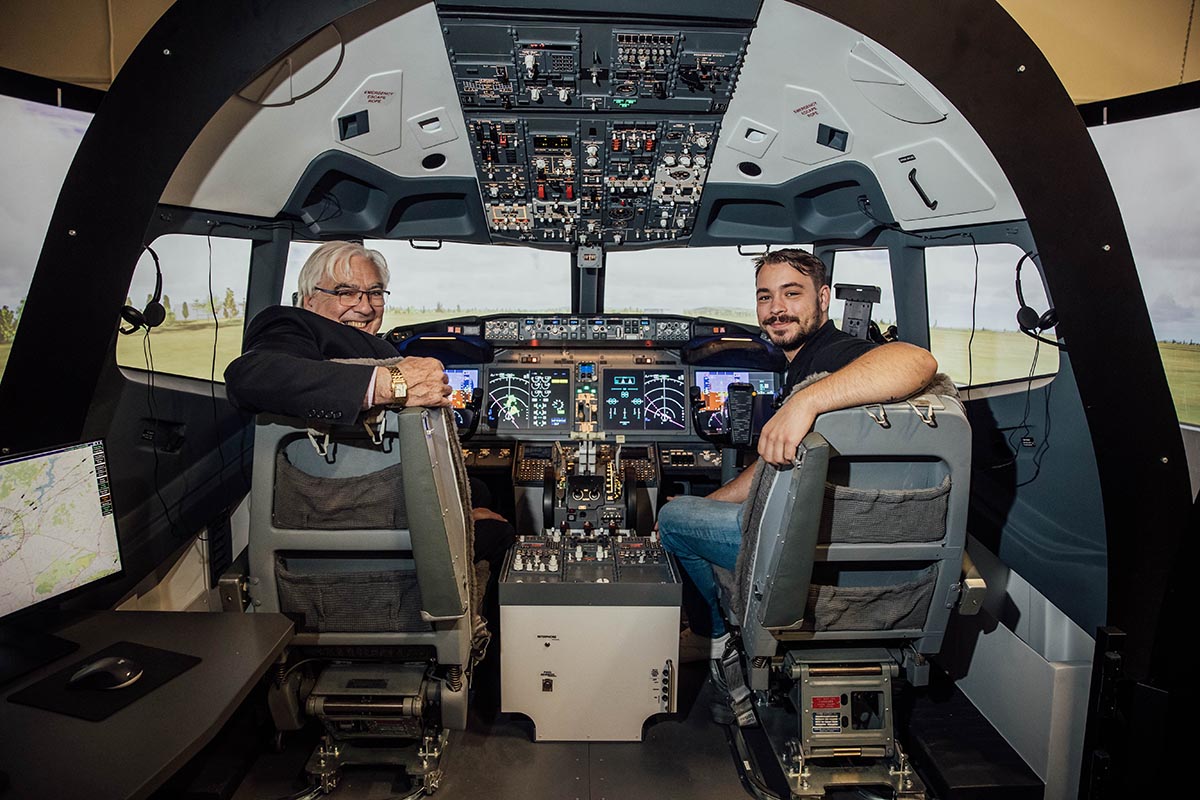One of the most fully functional and realistic flight simulators used in aircraft training was recently unveiled at Limerick and Clare Education and Training Board’s College of Further Education and Training (FET) Shannon Campus in Co. Clare.
The long-established campus is the only centre of its kind in Ireland which offers an Aircraft Maintenance Engineering Apprenticeship and the simulator acquisition is the latest enhancement to the state-of-the-art facilities on-site.
Limerick and Clare ETB Chief Executive, George O’Callaghan; Director of FET, Paul Patton; staff and learners at the campus were introduced to the new Boeing 737 Max fixed-based simulator by Aviation School Training Manager, Michael Hayes, who believes the new immersive training device will greatly benefit learners from an aircraft maintenance perspective.
Speaking at the campus, ETB Chief Executive George O’Callaghan said: “The addition of this Boeing 737 Max simulator at our College of FET, Shannon Campus shows the ETB’s dedication to providing staff and learners with cutting-edge training facilities which will further help to strengthen our status as an Aviation Centre of Excellence in Ireland.”
Described as ‘the latest and greatest of technology with unparalleled functionality’, the Boeing 737 fixed-based simulator is equipped with a modern flight deck detailed to replicate the real cockpit environment with all panels, controls and systems fully functional. This will enable learners to receive hands-on, practical experience when it comes to carrying out aircraft maintenance function and operational checks.
Michael Hayes explained: “A lot of theory is based in the classroom here, but now when we are explaining an aircraft system in class, we can take the apprentices out to the simulator and actually show them.” According to Michael, the immersive simulator will also see the learners dealing with a range of scenarios that pilots have to deal with on a daily basis. This can range from starting the engines, operating the flight controls to dealing with system failures: “While pilots fly the aircraft, from an engineering perspective aircraft maintenance engineers need to know what every switch in the flight deck controls and its function. They will now have the opportunity to gain this type of experience thanks to this impressive new technology.”

ETB Director of FET, Paul Patton, also spoke about the benefits of the new arrival: “This type of technology is an invaluable tool for training that mirrors real-world flight operations and will be very beneficial to learners here on campus studying Aircraft Maintenance Engineering. Having an opportunity to work on this type of simulator and become familiar with the aircraft instruments and systems and how they operate will be an excellent opportunity for them.”
Michael Hayes also believes the simulator holds great value as learners progress within the MRO (Maintenance, Repair and Overhaul) sector of the aviation industry: “It won’t be as daunting for our apprentices to see a flight deck when they go to work with their employer, which can be very intimidating. Now they will have hands-on experience to draw from, which means they will be more confident when they are working in their chosen field.”
